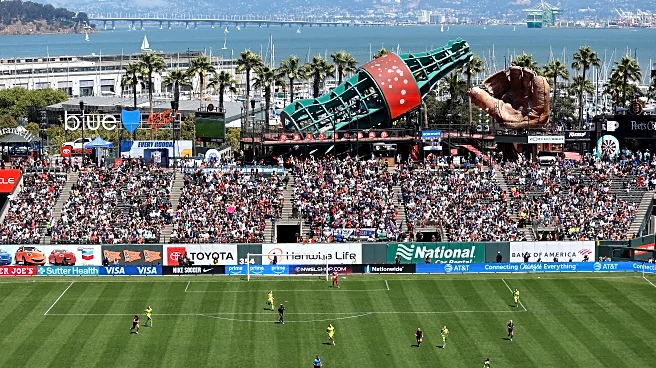Rapid Read • 8 min read
Jared Kushner, along with former UK Prime Minister Tony Blair, participated in a meeting at the White House led by President Trump to discuss a plan for post-war Gaza. The meeting, which included Steve Witkoff, the president’s foreign envoy, and other top administration aides, lasted over an hour. Kushner, who has been advising on Middle East issues, does not hold an official role in the White House but has been involved in discussions about the future of Gaza once Israel's war ends. The specifics of the plan remain unclear, but the administration is focused on ending the nearly two-year conflict and ensuring peace and prosperity in the region.
AD
The meeting signifies the administration's ongoing efforts to address the complex situation in Gaza and the broader Middle East. The involvement of Kushner, who has established relationships with regional leaders, suggests a strategic approach to post-war planning. The outcome of these discussions could impact U.S. foreign policy and its role in Middle Eastern peace processes. The administration's stance that Hamas should not control Gaza post-war raises questions about future governance and security arrangements, which are crucial for regional stability.
The White House has not disclosed further details about the meeting or the plan for Gaza. However, the administration's focus on humanitarian motives and robust planning indicates potential diplomatic engagements with regional leaders. The U.S. and Israel's position on Hamas's control suggests upcoming negotiations on governance and rebuilding efforts in Gaza. Stakeholders, including international organizations and Middle Eastern countries, may react to the proposed plans, influencing future diplomatic relations.
The meeting highlights ethical and humanitarian considerations in post-war planning for Gaza. The administration's approach could set precedents for U.S. involvement in conflict resolution and rebuilding efforts. The proposal for a 'Middle Eastern Riviera' reflects broader geopolitical ambitions and potential cultural shifts in the region. The long-term implications of these plans could affect U.S.-Middle East relations and the balance of power in the region.
AD
More Stories You Might Enjoy












